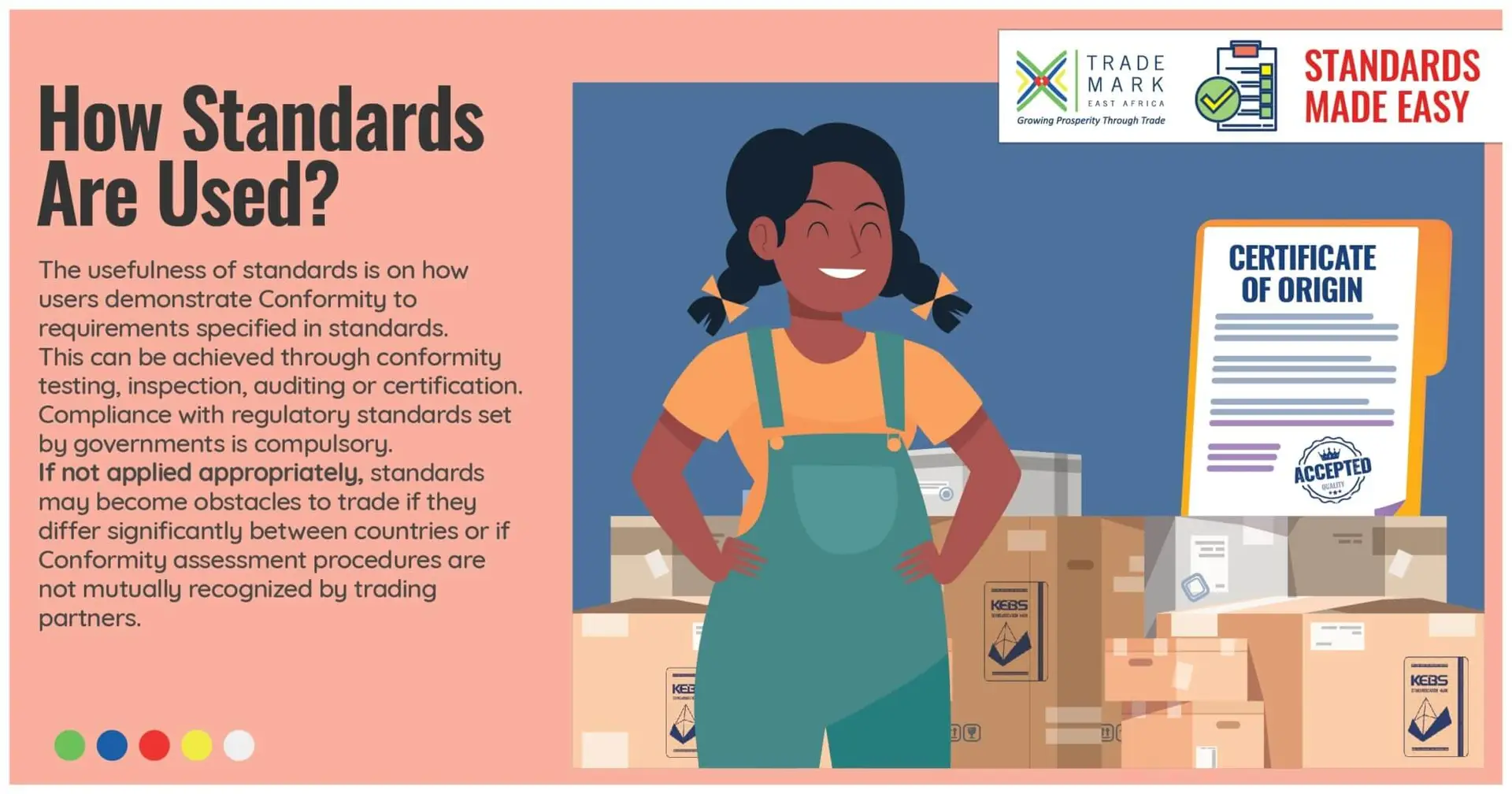Trade has evolved over the years from just being the engine for economic growth to being more responsive to equitable development, environmental stewardship, and green growth. Sustainable trade requires countries to tread carefully in balancing the triple bottom line of people, profits, and planet – each being dependent on the other. International standards aid this by providing a harmonized, stable and globally recognized framework for countries and business to operate and trade sustainably.
In the context of sustainable trade, international standards help industries to proactively balance their short and medium-term goals with long-term resilience, minimise non-tariff barriers to trade, invest in efficient low carbon technologies and diversify their export mix. The standards also play a key role in strengthening social capital, reducing carbon emissions and climate change effects, and promoting sustainable use of natural resources by committing to high environmental and social standards in trade agreements.
The greening of trade ensures that production, processing, transportation and trading of goods and services consider environmental impacts and basic human rights including gender equality and labour standards. A rapidly growing and lucrative “green market” exists for these sustainably produced low carbon products and developing countries can tap into such markets especially in developed countries by diversifying more into green/ environmental goods and services to remain competitive. Similar issues are assessed by foreign corporations when deciding where to invest their capital, technology, and expertise which is of importance to any country aiming at improving their ranking in the development ladder.
This year’s World Standards Day (marked on 14th October) will be observed with the ominous cloud of the COVID-19 still hanging over the globe. This context dramatically highlights a sobering realization, the fact that countries cannot close their borders to the threat of societal issues, decent work, climate change or environmental damage including biodiversity loss as has happened with the fight against the COVID-19 Pandemic.
The messaging and symbolism of this year’s theme on “#Protecting the planet with standards” remains very clear for the region. As infrastructural development, economies, and trade continue to grow, environmental and social challenges will continue to escalate and thus must be addressed as countries embark on an economic recovery phase. It is easy to only pay lip service in ensuring Green Recovery and Growth during and post COVID-19. However, standards are part of concrete actions that can actually ensure countries adapt, transform, allocate resources and communicate to protect and restore the natural environment, leaving it in a better state for future generations.
The World Bank Group’s environmental and social standards represent the international best practice in planning, evaluating, monitoring and reporting on environmental and social issues. Sector specific Environmental, Health, and Safety (EHS) guidelines have also been developed to cater to the specific challenges facing the different industry sectors. TMA follows the World Bank’s standards in its projects and promotes them in coordination with national and regional standards. These standards are in line or even parallel to other standards developed by the United Nations Industrial Development Organization (UNIDO), International Organization for Standardization (ISO), International Electrochemical Commission (IEC), and the International Telecommunication Union (ITU) with regards to environmental and social good practice.
Most notable standards, in this case, are the UNIDO principles and the ISO family of standards – ISO 14000 (environmental responsibilities), ISO 26000 (social responsibilities), and ISO 45001 (Occupational Health and Safety responsibilities). These standards also help countries and businesses to unlock the potential of the UN’s SustainableD Goals (SDGs) and make their contribution to international treaties such as the Paris agreement that sets out a global plan to limit global warming to well below 2°C. International Standards are thus an integral part of the solution to existing and emerging global challenges. TMA has supported the Kenyan Port Authority to integrate ISO 14001 and ISO 45001 systems into its management structures.
We in TMA are playing our part by collaborating with national authorities, institutions, private sector and international donors, to improve the well-being of the environment in all of our work. Given our programmes are geared towards the realisation of sustainable and inclusive trade, there are principles in place to ensure that our interventions do not result in any harm to people and the environment. In this regard, TMA applies environmental and social standards in all phases of project implementation and Environmental and Social Impact Assessments (ESIAs) are one of the major tools undertaken for all relevant projects.
A Green Corridors Programme for the region is being developed aiming at contributing towards low-carbon and climate-resilient trade while also strengtheninge and social protection issues in trade. This includess in the development of standards that not only reduce pollution and GHG emissions help businesses to boost quality exports and reduce transport costs and time, but also assist in accessing niche green markets and safeguarding the consumers, end-users and planet.
Additionally, in line with the ongoing COVID-19 pandemic, we recently launched a $20m Safe Trade Emergency Facility for the East and Horn of Africa that includes provision of support in development of protocols/ standards to make ports, borders and critical supply chains safe to trade in the ensuing COVID-19 trade wars.
As we get used to the “new normal” we must always remember that the planet’s health is strongly linked to our health making it necessary to place nature at the heart of all decision making even as countries start planning ways to recover. We, therefore, need to tread carefully in the pursuit of sustainable trade post COVID-19 and International Standards are an integral part of the solution!
Authors
- Denis Maina and Mikko Leppanen Climate Change and Environment, TMA


